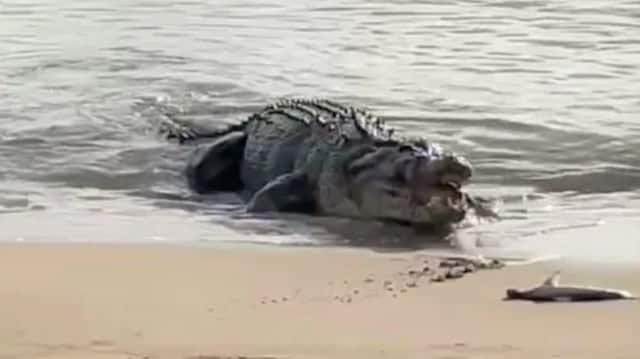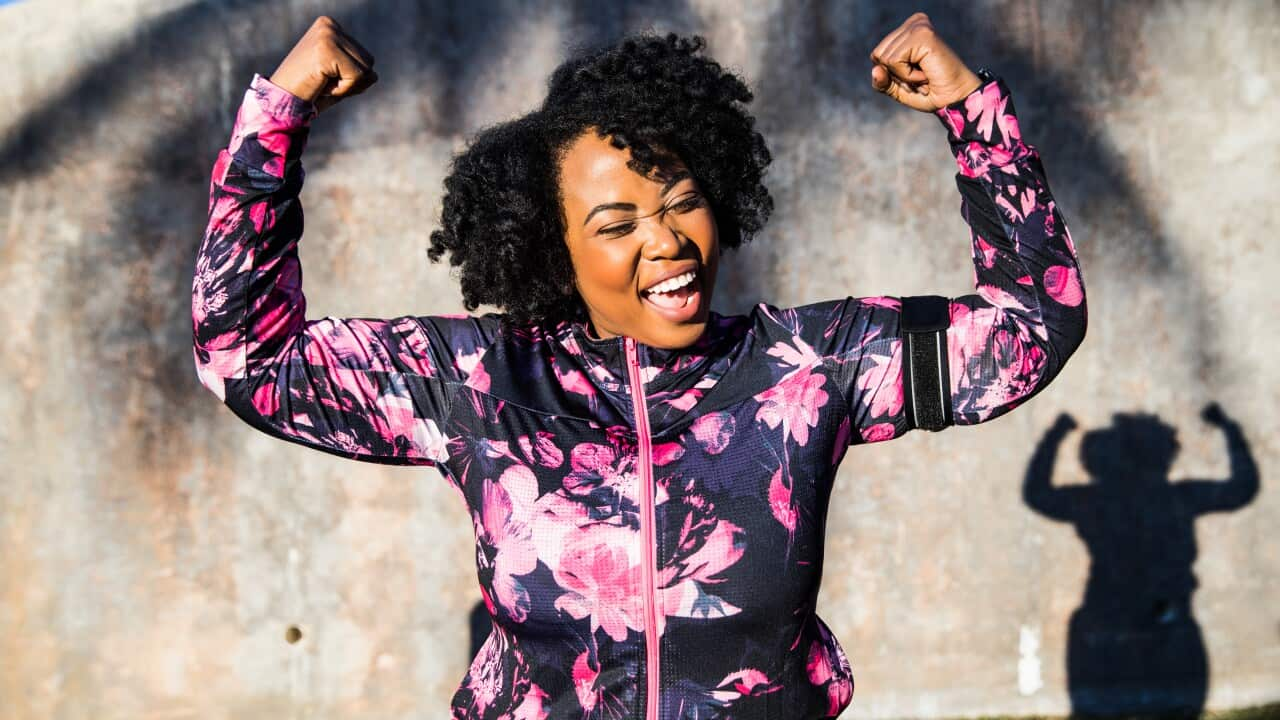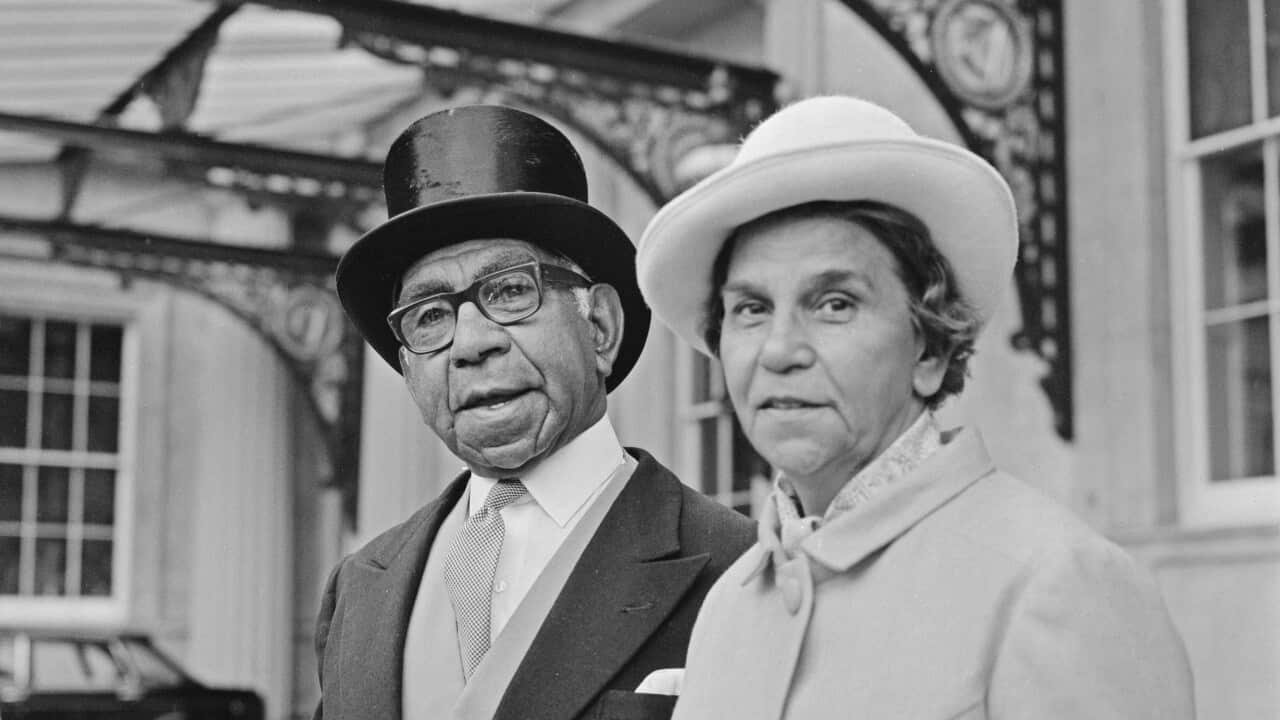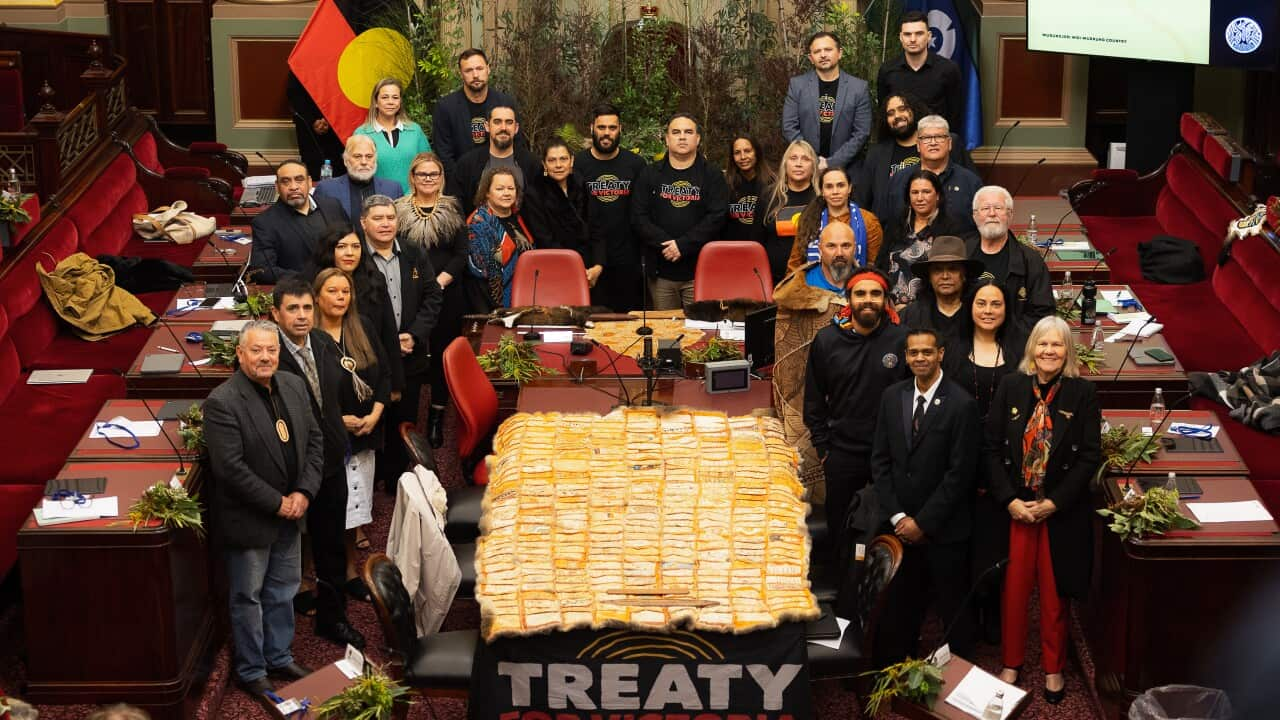This story is part of the SBS health and well-being initiative Mind Your Health. Click here to visit the portal, featuring digital stories, podcasts and videos in English and multiple languages.
Darwin-based barber, Mr Strachan, is the director of Deadly Hair Dude, a program that sees him travel to remote communities to train students in the art of foiling and handling hair clippers.
It’s designed to inspire them to get into the hairdressing profession and improve the overall health and well-being of those enrolled.
With Charles Darwin University already running two hairdressing training salons, in Darwin and Alice Springs, the initiative will give students the option to study at those locations once they have graduated from the program.
“There were a lot of communities in the Northern Territory that just didn’t have any hairdressers in them at all so what I realised is we can bring hairdressing training to the communities rather than them having to leave their homes, their families, their country and come into Darwin or Alice Springs,” Mr Strachan told NITV Radio.
“I’ve designed a program and linked up with Charles Darwin University and we have the support of the Australian Hairdressing Council to bring hairdressing training to remote communities, so people (there) have access to services that all of us take for granted in the cities.”
The long-time-hairdresser-turned-lawyer says the idea sprung up while he provided legal support to Aboriginal community members and noticed that many hadn’t had access to hairdressing services before court appearances.
“What I’ve decided to do is, I joined law and hairdressing together and give opportunities to people when they come out of detention centres or prisons," Mr Strachan said.
"So, I give them training when they are inside and when they come out, I provide them with job opportunities in their communities.”
Mr Strachan’s initiative is not restricted to juvenile offenders and rather services entire communities providing them with a holistic approach to hygiene and overall well-being.
“We've been to 30 remote indigenous communities, we've been to so many drug and alcohol programs, youth suicide programs, youth detention centres, homeless, mental health, life education, we go right around to virtually every kind of not-for-profit organisation, we team up with everybody,” he said.
He says increasing self-esteem is a key goal of the program.
We try and lift people's self-esteem by doing that, and of course, there are some places that we go to where people have never actually had a professional haircut in their lives.
“There are places we go to and people have never had a professional haircut in their lives and they might be 50 or 60 years old," Mr Strachan said.
“If you look good, you feel good and then you've got a spring in your step.”
He added that a trip to work could be a 2000-kilometre expedition through a number of crocodile-infested crossings.

Bringing hairdressing courses to remote communities involves Mr Strachan driving long distances and entering crocodile-infested crossings. Source: Facebook
He says as well as focusing on lifting self-esteem, the program also assists in the areas of general wellness.
“What I've noticed is that a lot of people sit and talk to their hairdresser, or their barber while they're sitting getting their hair done,” he said.
“And they tend to talk about any issues or problems that they have when they're sitting there.
“By having those conversations with their barber, just getting it off their chest, and chatting about things is a real benefit to so many people.”







